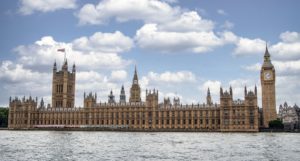Truthfulness is integral to democratic representation, study shows

There is need to revitalise those very aspects of representative democracy that not only require but also can promote truthfulness
There is an urgent need to revitalise the elements of democracy which promote truthfulness, a new study shows
It goes on to argue that the ‘reasonable disagreements’ that make democratic politics necessary can only be resolved in ways congruent with democratic norms if politicians are truthful, which means that they are sincere and accurate.
The rise of technocracy and populism are undermining accuracy and sincerity, and this has contributed to a crisis of democracy, according to the research. The crisis of democratic representation associated with technocracy and populism results from their shared rejection of pluralism and with it the need for truthfulness.
Both produce ‘disfigurements’ of democracy that prove incompatible with the virtues of good representation and the search for inclusive collective decisions that exemplify equal concern and respect.
There is a commonality between the two that underlies the tendency of each to distort representative democracy: namely, a shared rejection of pluralism and with it the undermining of truthfulness.
On the one hand technocracy – the increasing shift of important governmental tasks to institutions such as central banks, international organisations, private agencies and constitutional courts – has decreased the responsiveness of political representatives and undermined truthfulness.
The research, by Richard Bellamy from UCL and Sandra Kröger from the University of Exeter, says there is a need to avoid group think and decision-making becoming depoliticised, being captured by those with privileged access to politicians.
On the other hand, populism also promotes untruthfulness. The study outlines how two tactics used by populist politicians – “bullshit” and post-truth – both involve a flagrant disregard for accuracy and sincerity.
The crisis of democracy is further accentuated by the new online communication environment which makes the move to echo chambers of fellow-minded bad companions particularly easy.
Strengthening constitutional checks to prevent extremism risks deepening resentment towards politicians.
Instead, the study focuses on political parties to revive aspects which are critical to promote truthfulness.
There is need to revitalise those very aspects of representative democracy that not only require but also can promote truthfulness: namely, political competition informed by an acknowledgement of pluralism, on the one side; and procedures of authorisation and accountability that foster the virtues inherent to representative integrity, on the other
The study suggest that representatives should be capable of offering political justifications that are credible to both party members and the public at large, and sanctioned if they prove inaccurate or insincere in the promises they make.
Professor Kröger said: “If different views get critically compared in adversarial and public forums, then the probability of lies, deception, bullshit and post-truth being called out will increase.
“The revival of representative democracy ultimately depends on reigniting the commitment to pluralism and truthfulness among citizens and with it a desire for the associated virtues of good representation.”



